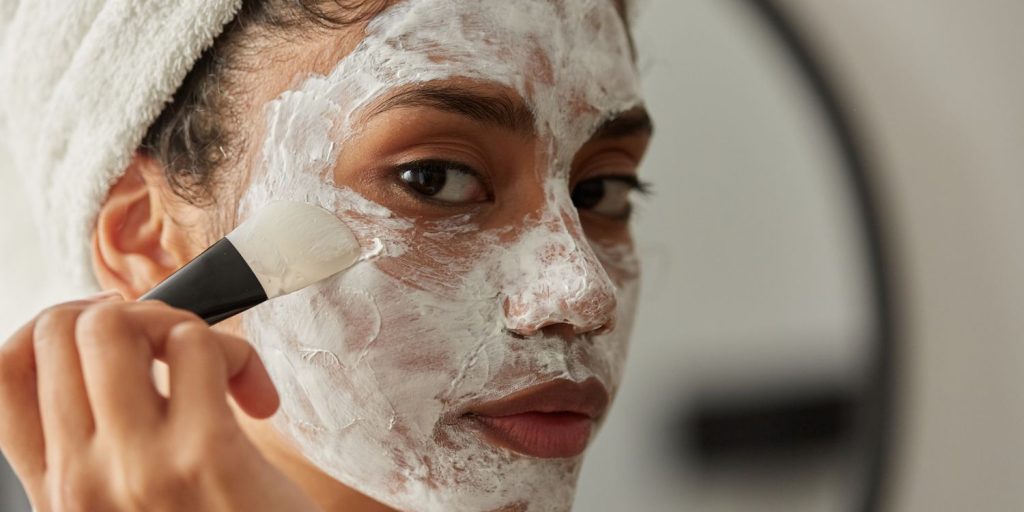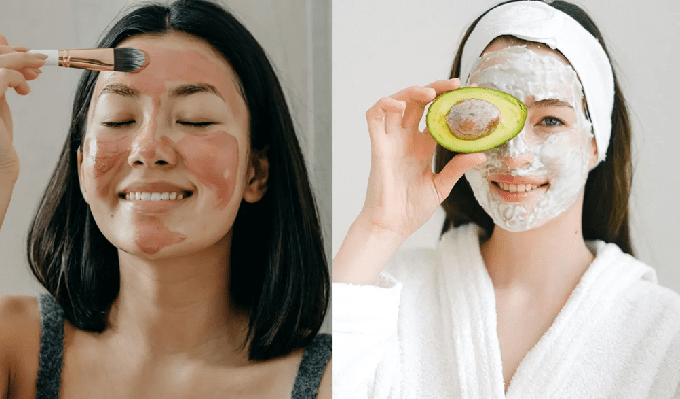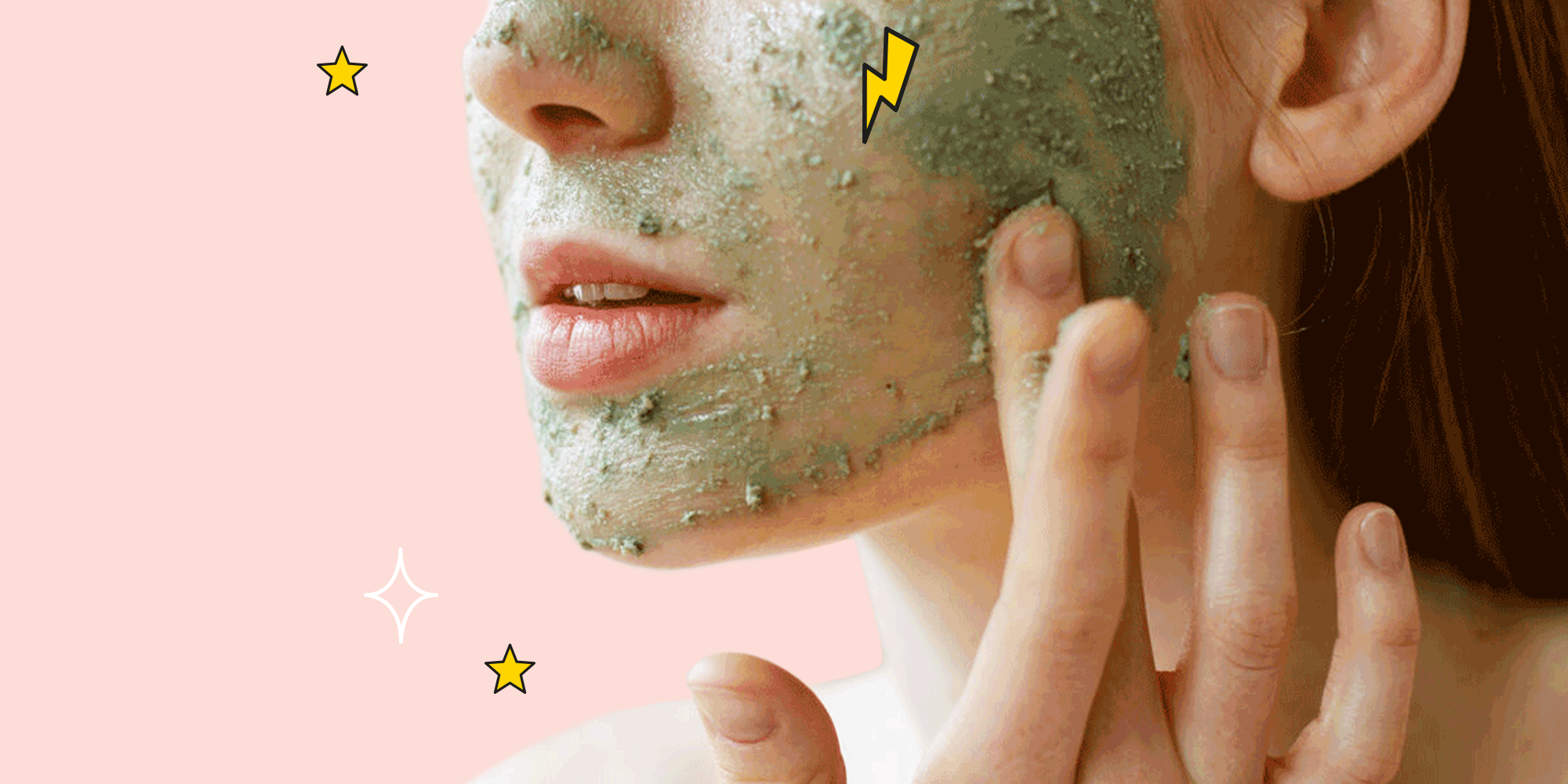In today’s world of skincare, taking control of what goes on your skin is more important than ever. While commercial face masks are readily available, DIY face masks offer a natural, cost-effective, and customizable solution for a variety of skin concerns. From dry and sensitive skin to oily and acne-prone types, creating masks at home allows you to harness the benefits of natural ingredients tailored to your needs. Here’s a guide to DIY face masks for every skin type.
1. Dry Skin

Dry skin often feels tight, flaky, and lacks a healthy glow. The goal of a DIY face mask for dry skin is deep hydration and nourishment.
Ingredients:
- 1 ripe avocado
- 1 tablespoon honey
- 1 tablespoon plain yogurt
Instructions:
Mash the avocado until smooth, then mix in honey and yogurt. Apply the mask evenly on your face and leave it for 15-20 minutes. Rinse with lukewarm water and pat dry.
Benefits:
Avocado is rich in fatty acids and vitamins that moisturize, honey is a natural humectant that locks in moisture, and yogurt provides gentle exfoliation while soothing dryness.
2. Oily Skin
Oily skin is prone to excess sebum production, which can lead to clogged pores and breakouts. The ideal mask helps absorb oil and tighten pores without over-drying.
Ingredients:
- 2 tablespoons bentonite clay
- 1 teaspoon apple cider vinegar
- 1 teaspoon honey
Instructions:
Mix the ingredients into a smooth paste. Apply a thin layer to your face and leave it on for 10-15 minutes. Rinse off with warm water.
Benefits:
Bentonite clay draws out impurities and excess oil, apple cider vinegar balances the skin’s pH, and honey provides antibacterial properties to prevent breakouts.
3. Combination Skin

Combination skin requires a mask that balances oil in the T-zone while hydrating the drier areas like cheeks.
Ingredients:
- 1 tablespoon oatmeal
- 1 tablespoon honey
- 1 tablespoon yogurt
Instructions:
Mix the oatmeal, honey, and yogurt into a paste. Apply evenly and leave for 15 minutes. Rinse with lukewarm water.
Benefits:
Oatmeal gently exfoliates and absorbs excess oil, honey hydrates dry patches, and yogurt calms inflammation, creating a balanced skin condition.
4. Sensitive Skin
Sensitive skin is delicate, easily irritated, and often reacts to harsh chemicals. DIY masks for sensitive skin should be soothing and calming.
Ingredients:
- 1 tablespoon aloe vera gel
- 1 teaspoon chamomile tea (cooled)
- 1 teaspoon honey
Instructions:
Mix aloe vera gel with honey and chamomile tea. Apply a thin layer on your face and leave for 10-15 minutes. Rinse gently with lukewarm water.
Benefits:
Aloe vera soothes irritation, chamomile has anti-inflammatory properties, and honey hydrates without causing sensitivity.
5. Acne-Prone Skin

For acne-prone skin, masks should target bacteria, inflammation, and excess oil while promoting healing.
Ingredients:
- 1 tablespoon turmeric powder
- 1 tablespoon yogurt
- 1 teaspoon honey
Instructions:
Mix the ingredients to form a smooth paste. Apply to affected areas or the entire face if necessary. Leave for 10-15 minutes and rinse thoroughly.
Benefits:
Turmeric has strong anti-inflammatory and antibacterial properties, yogurt provides gentle exfoliation, and honey soothes the skin while preventing further breakouts.
Tips for Using DIY Face Masks
- Patch Test First: Always test a small amount of the mask on your inner wrist or behind your ear to ensure you don’t have an allergic reaction.
- Use Fresh Ingredients: Natural ingredients lose potency over time. Make your masks fresh each time for maximum benefits.
- Avoid Overuse: Using masks too frequently can irritate your skin. For most skin types, 1-2 times per week is sufficient.
- Moisturize After: Always follow up with a suitable moisturizer to lock in hydration and benefits from the mask.
- Consistency Matters: Results from DIY masks are gradual. Regular use over time will improve your skin texture and glow.
Conclusion
DIY face masks are a simple and effective way to enhance your skincare routine without relying on expensive products. By choosing ingredients based on your skin type and concerns, you can create natural masks that hydrate, balance, soothe, and rejuvenate your skin. Whether you have dry, oily, combination, sensitive, or acne-prone skin, there’s a DIY mask tailored for you. With regular care, these homemade treatments can leave your skin feeling fresh, radiant, and healthy, proving that sometimes, nature really knows best.

